Kitties!
Huckleberry and Henry
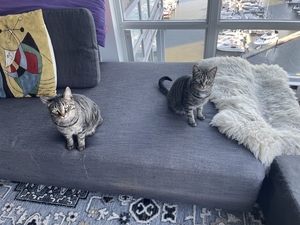
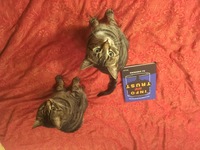
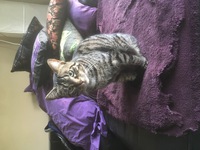
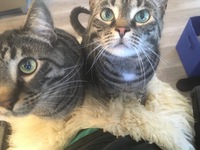
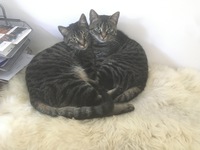
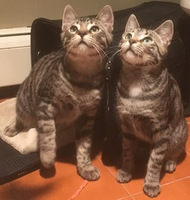
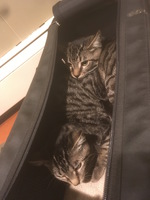
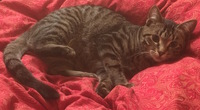
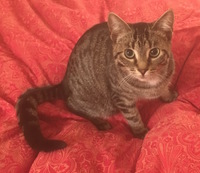
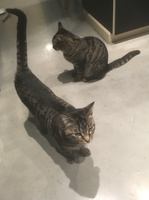
New kitties!! Adopted Nov 28 2017, at roughly six months, sister and brother
from the same litter. They were part of a litter of six plus mamacat,
found under a deck in Surrey as ferals, very shy at first. They've
gotten to understand that humans can be a source of treats and
petting, but are still on the skittish side and are not (yet) into
being picked up.
Not so easy to tell apart from above, they're both grey tabbies. Huck
has a little white splotch at her throat. Henry is a little bigger,
with a kink in his tail.
Domo and Varas
Domo Kittenwar
|
Domo and Varas Kittenwar
Domovik and Aitvaras were born May 23, adopted Aug 16, 2003. They're
not quite identical: Domo is a little bigger than Varas, and he has
the tiny white goatee and cravat whereas her tabby markings are a bit
clearer. Update: their tabby markings have faded to black oblivion,
and Varas is notably more long-furred than Domo. But they're still
tricky to tell apart from above, sometimes. Update 2: Domo is now
noticably more burly than Varas.
Domo died Feb 9 2014. Varas died Sep 2 2015.
Domovik
Male ancestral spirit of Russian folklore that guards the household,
often found living behind the stove or under the steps. [He often naps
under the steps.] He can take several animal forms. He helps with
chores at night when everyone is asleep, as long as he is regularly
fed supper. [He hasn't done the dishes once, despite regular feedings.
Shocking.] He was also protective of the house from pilferers. The
Domovik is also a mischievous spirit that is known to tickle people,
knock over pans, and bang on walls. [He's made good progress so far on
his bouncing-off-the-walls technique.] The Domovik is fond of those
that take good care of their property but detest the lazy, often
bringing harm to them. [Good motivation to clean the litterbox
regularly.] A member of the household might sometimes feel the Domovik
brush against him. If the Domovik feels hairy, good fortune is to
come; however, if he feels smooth, bad luck is imminent. [He's been
hairy every single time I've felt him. Clearly, life will go well.]
Aitvaras
Spirit of Lithuanian folklore. Sometimes it could be a normal animal,
such as a cat (usually black in color) within a home or dwelling.
However, it was said to take the shape of a fiery serpent or a flying
dragon while outside. [So far she's stuck with the black cat shape,
but then she's not allowed outside...] It usually nests behind the
stove, eating and drinking what the inhabitants of the house leave it.
Once it makes its home in a house, it is almost impossible to get rid
of it. [I admit I haven't tried too hard yet to kick her out.]
An Aitvaras was known to make its owner rich by any means necessary [a
fine idea!], usually by stealing corn, milk and gold from its owner's
neighbours. [Um, neighbors - ignore this line. And you didn't need
that corn anyway.] An Aitvaras can be purchased from the Devil, the
price being one's soul. [I got a really good deal from a third-party
reseller, since I didn't have time to bargain with George Bush in
Washington D.C.: I just paid a small fee to the Vancouver Orphan
Kitten Rescue Association.] If you did take the risk to own one they
are easy to please, they only demand the sustenance of omelettes in
return for the wealth they bring. [I use a somewhat obscure omelette
recipe involving wet and dry cat food.]
Before Christianity came to Lithuania, the Aitvaras were seen much as
guardian angels or the like, and they were immortal spirits in the
wilds or the home. When injured, they would just have to touch the
ground in order to repair themselves.
Tamara Munzner
Last modified: Sun May 20 13:58:53 PDT 2018










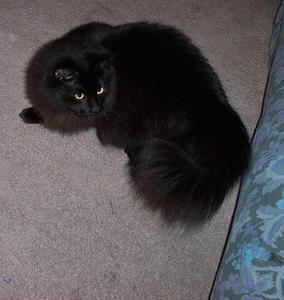
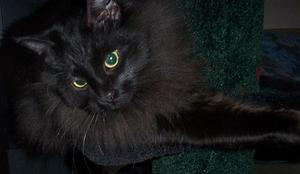
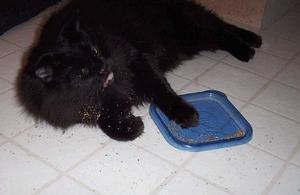
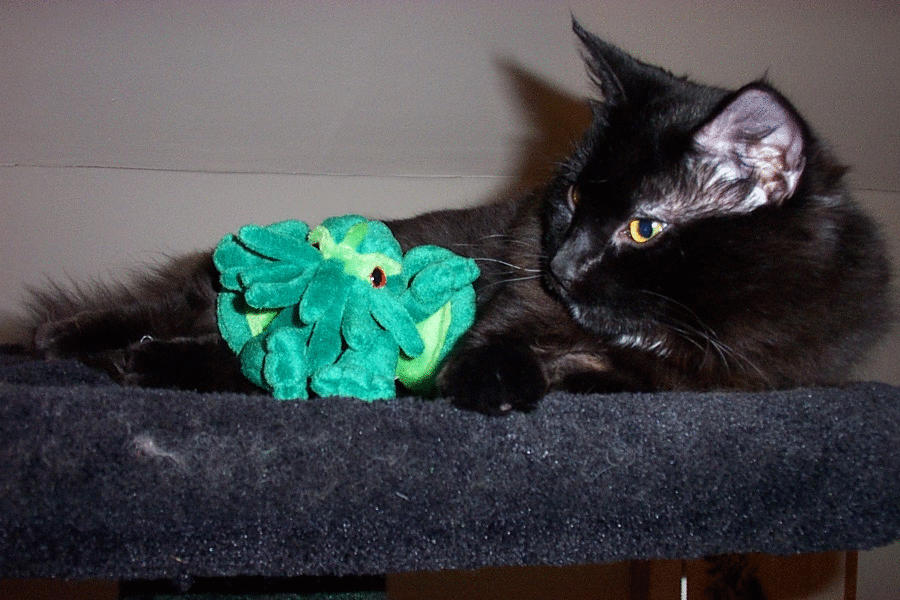
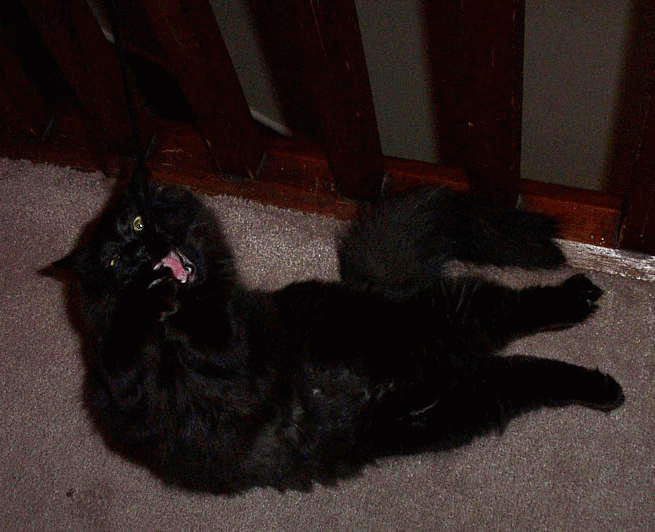 Mar 2003
Mar 2003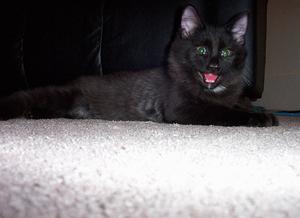
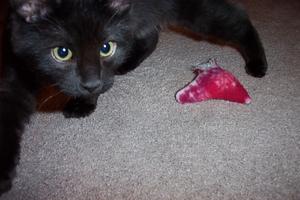 Dec 2003
Dec 2003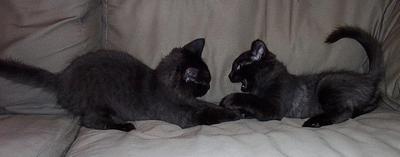
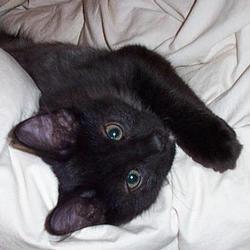 Sep 2003
Sep 2003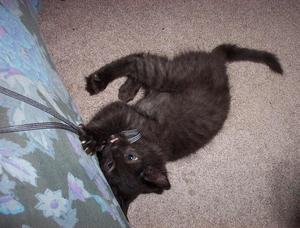 Aug 2003
Aug 2003